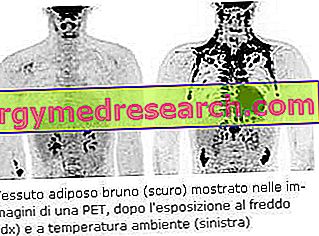Myocarditis is an inflammation of the heart muscle.

Myocarditis can be caused by a variety of factors, including infections, systemic diseases, autoimmune mechanisms, exposure to toxins or hypersensitivity responses to some drugs.
In many cases, inflammatory myocardial disease produces no obvious symptoms. However, a serious clinical picture may be associated with:
- Abnormalities of normal heart rhythm (arrhythmias);
- Weakness of the heart muscle (heart failure: the heart is no longer able to develop the strength necessary to maintain normal range);
- Electrical and / or mechanical dysfunction of the cardiac muscle characterized by progressive degeneration of the myocardium (cardiomyopathy);
- Sudden cardiac arrest.
In some situations, the disease can induce necrosis (death) of heart tissue.
The pathophysiology of myocarditis is characterized by myocyte dysfunctions (myocardial cells), due both to direct tissue injuries and to immune-mediated damage.
In most patients, the clinical course is self-limiting and myocardial inflammation resolves without causing permanent consequences. The most serious cases, or those that become chronic, may require hospitalization and adequate treatment, which depends mainly on the underlying cause.
Causes
Myocarditis recognizes several causes:
- Viral infections . The most common cause of myocarditis is a viral infection of the heart muscle. Viruses invade the myocardium and cause local inflammation with activation of the immune system; this defensive response of the host attenuates viral replication and protects myocytes from virus-mediated lesions. However, some components of the immune reaction can also contribute to the development of myocardial inflammation, necrosis and ventricular dysfunction. During and after the viral infection, in fact, the immune system can attack cardiac myosin and inflict damage to the myocardium (some pathogens have epitopes immunologically similar to cardiac myosin). This immune response helps establish the clinical picture of myocarditis.
Various viruses can cause inflammatory myocardial disease, including: adenovirus, parvovirus B19, coxsackievirus, enterovirus, HIV, Epstein-Barr virus, rubella virus, poliovirus, cytomegalovirus, varicella-zoster virus (HHV-3) and human herpesvirus 6 (HHV-6).
- Bacterial infections . In some people with diphtheria, a toxin produced by Corynebacterium diphtheriae causes a form of myocarditis that makes the heart muscle flaccid and enlarged. Following this pathological process, the heart cannot pump blood efficiently and severe heart failure may develop within the first week of illness. Even an infection caused by the bacterium Borrelia burgdorferi, the causative agent of Lyme disease can cause myocarditis.
Bacterial myocarditis can also be caused by pathogens such as: Brucella, Leptospira, Neisseria gonorrhoeae, Haemophilus influenzae, Actinomyces, Tropheryma whipplei, Vibrio cholerae and Rickettsia . Rarely, myocarditis is a complication of endocarditis, an infection of the heart valves and the inner lining of the chambers of the heart, often caused by bacteria.
- Chagas disease . Myocarditis can be caused by the infection of the Trypanosoma cruzi protozoan , transmitted by an insect bite. The pathogen causes Chagas disease, endemic in Central and South America. After the first infection, about one third of affected patients develop a form of chronic (long-term) myocarditis. This leads to a significant destruction of the heart muscle, which leads to progressive heart failure. The protozoan Toxoplasma gondii, responsible for toxoplasmosis, can also participate in the etiology of myocarditis.
- Inflammatory diseases. These include systemic lupus erythematosus, sarcoidosis and other autoimmune diseases, such as scleroderma and systemic vasculitis (eg, Churg-Strauss syndrome and Wegener's granulomatosis).
- Toxic substances :
- Alcohol abuse;
- Heavy metals, chemicals and toxins (eg: hydrocarbons, carbon monoxide, toxic shock syndrome, arsenic or snake venom);
- Some drugs: doxorubicin (or adriamycin), anthracycline, chemotherapy and antipsychotics (for example: clozapine).
- Physical agents: electric shock, hyperpyrexia and radiation exposure.
Other possible causes of myocarditis include rejection after a heart transplant.
About 6-10% of cases of dilated cardiomyopathy are secondary to myocarditis.
Myocarditis can affect people of all ages and, as it is often asymptomatic, it can be diagnosed only after a young adult, with heart damage from chronic myocarditis, dies unexpectedly during exercise (almost 20% of sudden deaths between young adults and athletes are the consequence of myocarditis).
Potential causes of myocarditis | |
| Most common causes | Less frequent causes |
|
|
Symptoms
To learn more: Symptoms of myocarditis
The signs and symptoms associated with myocarditis are manifold and depend both on the actual inflammation of the myocardium and on phenomena secondary to the inflammatory process, such as the weakening of the heart muscle.
In mild cases, myocarditis can be asymptomatic and the patient may feel a sense of malaise and general symptoms, without realizing that the heart is involved. The only sign of inflammation of the heart could be a temporary abnormal result of an electrocardiogram (ECG), which measures the electrical activity of the heart and demonstrates some abnormalities, such as decreased strength of cardiac muscle contractions.
In severe cases, the signs and symptoms of myocarditis vary depending on the cause of the disease. These may include:
- Fever (especially when myocarditis is of infectious origin);
- Chest pain (often described as "excruciating");
- Cardiac arrhythmias (irregular heart rhythm, with abnormally fast, slow or irregular beats);
- Shortness of breath, at rest or during physical activity;
- Fluid retention with swelling of the legs, ankles and feet;
- Fatigue;
- Sudden loss of consciousness (syncope).
Myocarditis symptoms can resolve spontaneously, remain stable or progressively worsen over time, until a heart transplant is necessary. Patients often experience flu-like signs and symptoms, such as malaise, headache, joint and muscle pain, fever, sore throat or diarrhea in the 2-4 weeks prior to presentation. When myocarditis is more severe, it can induce: heart failure (with symptoms such as dyspnoea, fatigue, accumulation of fluid in the lungs, liver congestion, etc.) or sudden death. Patients with viral myocarditis often have concomitant pericarditis (inflammation of the membrane that covers the heart). Myocarditis is also associated with abnormal heart rhythms including ventricular tachycardia, heart block, flutter and atrial fibrillation.
Myocarditis in children
Myocarditis symptoms in newborns and children tend to be more non-specific, with general malaise, loss of appetite, abdominal pain and / or chronic cough. In addition, pediatric patients may experience the following signs and symptoms:
- Temperature;
- Breathing difficulties;
- Rapid breathing;
- Bluish or grayish skin color.
Fulminant myocarditis
Fulminant myocarditis is a severe inflammation of the myocardium, which results in ventricular systolic dysfunction, cardiogenic shock and multi-organ failure. In about 10% of subjects with myocarditis, the condition may be the causal factor in the onset of acute heart failure. If patients with fulminant myocarditis are adequately supported and in a timely manner with a treatment, they can have a good recovery, with minimal sequelae in the long term. Currently, the factors determining whether a patient will develop fulminant myocarditis are not known, but early recognition of this disease is very important. The underlying etiology and pathogenesis of fulminant myocarditis, are believed to be similar to the inflammatory disease of non-fulminant myocardium. Due to its rarity, however, the incidence of the condition is not well characterized.
Diagnosis
Myocarditis is due to an underlying process that causes inflammation and damage to the heart muscle, not related to some other insult. Many secondary causes, such as a heart attack (myocardial infarction), can lead to an inflammation of the myocardium, therefore the diagnosis of myocarditis cannot be based solely on tests that confirm the presence of the inflammatory process limited to the heart. To confirm the presence of the disease, the doctor can proceed with an electrocardiogram (ECG), a chest x-ray, an echocardiogram and blood tests. Myocardial inflammation can be suspected based on altered electrocardiographic results (T-wave inversions and ST-segment elevations), increase in C-reactive protein and / or erythrocyte sedimentation rate (ESR) values. In patients with myocarditis, laboratory results may show: leukocytosis, eosinophilia and increased IgM (serological analysis) and levels of cardiac troponin or creatinine kinase-MB (markers of myocardial damage). The definitive diagnosis requires an endomyocardial biopsy, generally performed in the context of an angiography, which helps to clarify the clinical-pathological correlations. A small sample of endocardial and myocardial tissue is taken and studied by an anatomopathologist on optical microscopy. The analysis of the sample, processed with immunochemical methods, allows to establish the presence of histopathological features, such as the abundant edema and the inflammatory infiltrate in the myocardial interstitium, rich in lymphocytes and macrophages. The focal destruction of the myocytes explains the insufficiency of the myocardial pump.
Treatment
Prognosis and treatment of myocarditis vary depending on the cause, the severity of the inflammation, the age of the patient, the clinical and hemodynamic data. Infections can be managed with therapy directed to the responsible pathogen (example: antibiotics in case of bacterial myocarditis). In the acute phase, supportive therapy is indicated, including rest. For symptomatic patients, digoxin and some diuretic drugs favor clinical improvement.
Moderate to severe cardiac dysfunction may be supported by inotropic therapy, followed by ACE inhibitors (example: captopril, lisinopril etc.). People who do not respond to conventional therapy are candidates for treatment with ventricular assist devices, high doses of vasopressors, short cycles of steroids or other drugs that reduce the immune response. Heart transplantation is reserved for very serious patients who cannot improve with conventional therapy. Long-term treatment depends on the degree of residual heart damage and the presence of cardiac rhythm abnormalities.
In Depth: Medicines for Myocarditis Care "
Prognosis
The prognosis of myocarditis depends on the cause and general health conditions of the patient. For example, in adults with simple coxsackievirus myocarditis, the symptoms may start to improve over a couple of weeks. In other cases, it may take a few months to recover. If the disease is recognized promptly, so as to undertake adequate supportive therapy immediately, the patients' long-term prognosis is good.
In many people with myocarditis, heart muscle damage improves without therapy and condition-related abnormalities found during echocardiography tend to disappear. However, the most severe forms can become chronic or cause permanent damage to the myocardium, which persist even after the resolution of the inflammation. These patients may develop dilated cardiomyopathy or progress to an advanced stage of heart failure. Heart failure with left ventricular dilatation may have a good prognosis, while loss of right ventricular function, cardiac arrest, and ventricular arrhythmias associated with myocarditis are related to an unfavorable outcome.



